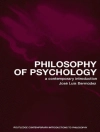Plato’s Moral Psychology is concerned with Plato’s account of the soul and its impact on our living well or badly, virtuously or viciously. The core of Plato’s moral psychology is his account of human motivation, and Rachana Kamtekar argues that throughout the dialogues Plato maintains that human beings have a natural desire for our own good, and that actions and conditions contrary to this desire are involuntary (from which follows the ‘Socratic paradox’that wrongdoing is involuntary). Our natural desire for our own good may be manifested in different ways: by our pursuit of what we calculate is best, but also by our pursuit of pleasant or fine things – pursuits which Plato assigns to distinct parts of the soul. Kamtekar develops a very different interpretation of Plato’s moral psychology from the mainstream interpretation, according to which Plato first proposes that human beings only do what we believe to be the best of the things we can do (‘Socratic intellectualism’) andthen in the middle dialogues rejects this in favour of the view that the soul is divided into parts with some good-dependent and some good-independent motivations (‘the divided soul’).
Rachana Kamtekar
Plato’s Moral Psychology [PDF ebook]
Intellectualism, the Divided Soul, and the Desire for Good
Plato’s Moral Psychology [PDF ebook]
Intellectualism, the Divided Soul, and the Desire for Good
Beli ebook ini dan dapatkan 1 lagi PERCUMA!
Bahasa Inggeris ● Format PDF ● Halaman-halaman 240 ● ISBN 9780192519382 ● Penerbit OUP Oxford ● Diterbitkan 2017 ● Muat turun 3 kali ● Mata wang EUR ● ID 8102943 ● Salin perlindungan Adobe DRM
Memerlukan pembaca ebook yang mampu DRM












